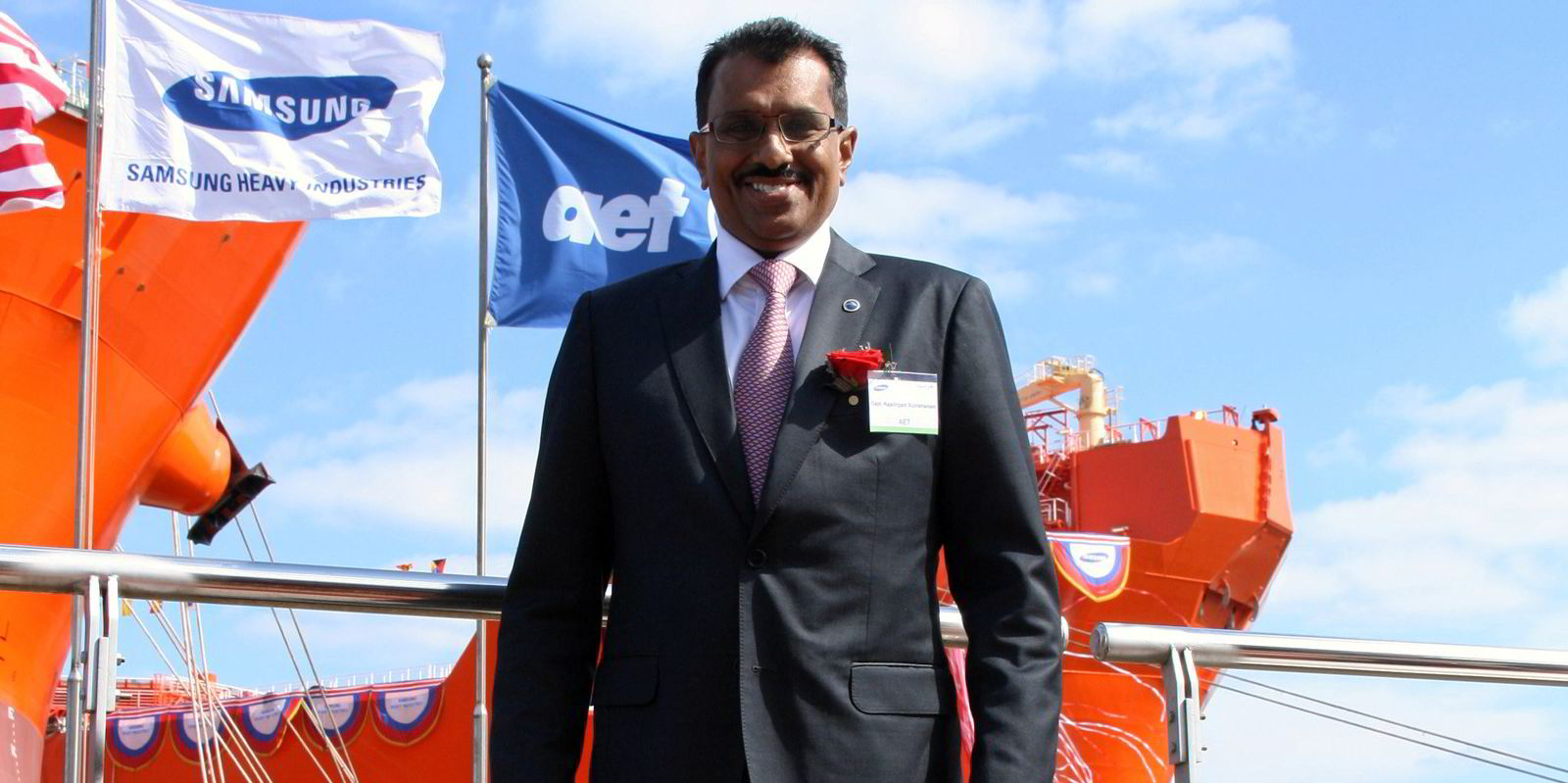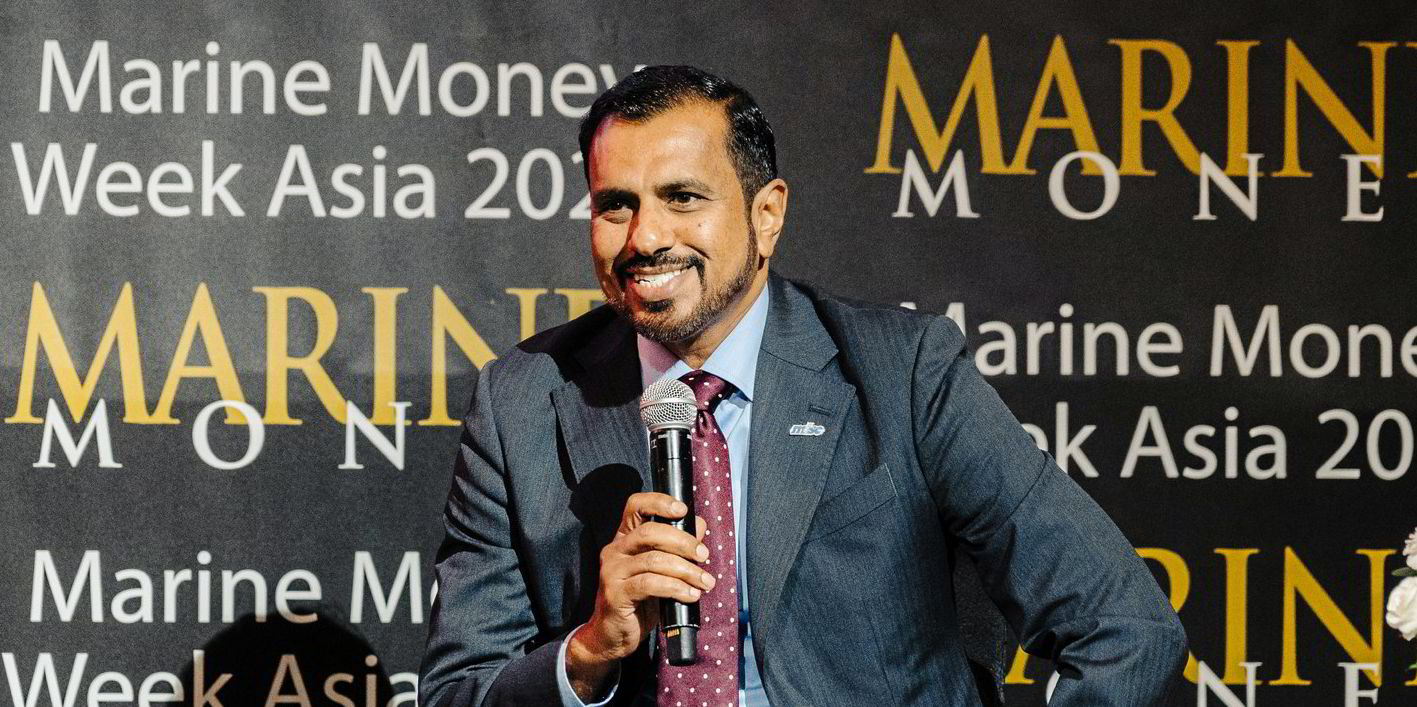MISC has long been a first-mover in sustainable shipping. The main driving force behind its desire to be at the forefront of the industry’s decarbonisation drive is its president and group chief executive, Captain Rajalingam Subramaniam.
The Malaysian shipping giant’s tanker arm, AET, was the first operator to book LNG-dual fuel tankers when Rajalingam was its CEO, ordering two aframaxes at Samsung Heavy Industries in 2015.
The orders were the culmination of an idea that began during a visit by Rajalingam and his family to the biodomes at Singapore’s Gardens by the Bay.

“At the end of the visit, my family and I watched a thought-provoking video about climate change. I asked myself what we as industry leaders can do to play our part in preventing this from happening,” Rajalingam told TradeWinds when the two ships were delivered in 2018.
He first had to persuade MISC’s then chief executive, Yee Yang Chien, and the board to take what at the time was considered a bold step and order the two trailblazing tankers without charters attached or bank financing in place.
When the 113,000-dwt Eagle Brasilia and Eagle Bintulu were delivered, Rajalingam and Yee described them as a “major leap of faith”.
There was no security of LNG fuel supply or any indication from charterers that they would be interested. Even the company’s bankers questioned the move. Undeterred, MISC moved ahead with the project and financed the duo using its own balance sheet.
It didn’t take long before this leap of faith had landed on solid ground. Shell, itself under pressure to cut emissions, quickly fixed both ships on long-term charters. Meanwhile, LNG bunkering infrastructure was being developed globally, and other tanker operators began to follow AET’s lead.

This success gave the MISC board confidence to support many other sustainability initiatives.
AET went on to build LNG dual-fuel shuttle tankers and even VLCCs — the 299,200-dwt Eagle Valence was the first of its type in the world when delivered in 2022. By the beginning of this year, a total of 11 low-carbon dual-fuel vessels had delivered to AET, which continues to transition its fleet to dual-fuel vessels.
Longer-term, it will move to a zero-carbon fleet and has committed to deliver its first two ammonia-fuelled zero carbon emission tankers in 2025 and 2026 through its partnership in the Castor Initiative.
At the same time, the group has been exploring greenhouse gas abatement technologies to reduce methane emissions from LNG-fuelled vessels and carbon capture technologies to retrofit on the existing fleet.
Rajalingam was promoted when Yee retired in late 2022. Shortly thereafter, the decision was made that no future investment would be made in conventional assets. MISC will instead focus on allocating investments to green assets.
It is exploring new green asset classes to add to its portfolio and has pledged 38% of its capital expenditure as “green capex”.
One such new green asset class is a floating CO2 storage unit (FCSU) that aims to lead the way in enhancing the efficiency of the carbon capture and storage value chain. MISC has partnered Samsung Heavy Industries to develop an FCSU that can store captured CO2 as well as inject it into depleted oil and gas fields offshore.
This year, it also joining Mitsui OSK Lines and Malaysian energy giant Petronas on a project involving liquid CO2 carriers.
Since having to finance its first pair of LNG dual-fuel aframaxes on its own balance sheet, MISC has been able to tap green financing, including a $527m syndicated loan facility lined up in September for the financing of six very large ethane carriers, with Standard Chartered playing a lead role as structuring bank, sustainability coordinator and hedge coordinator.
Rajalingam is vocal about the banking sector’s unwillingness to finance first-mover technology and take on some of the risk. This, he claims, leaves the shipping industry to shoulder too much of the burden.
The banks’ hesitance is not stopping MISC and Rajalingam from continuing in a trailblazing role, even if it means the company’s latest first-mover projects in carbon capture technology and the CO2 carriers are also being self-funded.




